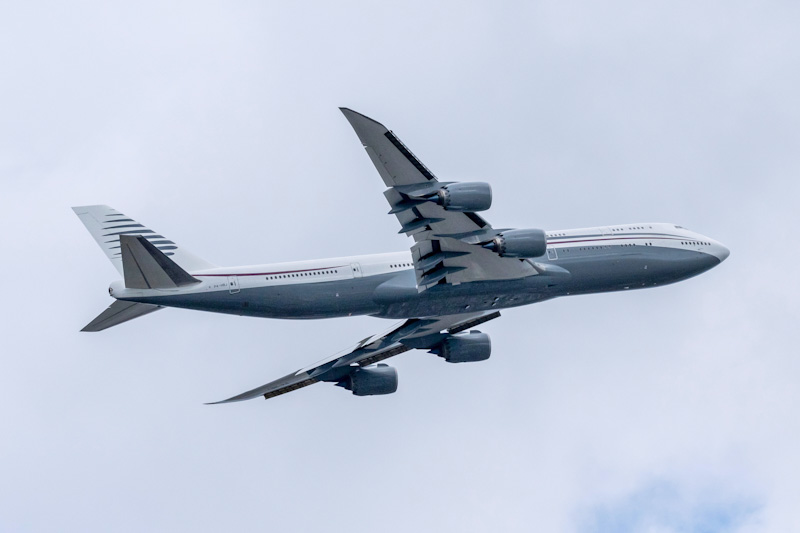Qatar’s Gift of a Luxury Plane to the US: Constitutional Implications
May 13, 2025
A 13-year-old Boeing 747 recently took off from Palm Beach International Airport. (Photo by Ben Curtis/The Associated Press)
Concerns are mounting from some Democratic lawmakers and ethics experts regarding Qatar’s plan to donate a Boeing 747 jumbo jet, valued at approximately $400 million, to the U.S. Department of Defense. Critics question the legality and constitutional implications of this gift.
The Proposal and Its Context
On May 11, former President Donald Trump announced via Truth Social that this aircraft would temporarily serve as a replacement for Air Force One, which has been in service for over three decades. The aircraft will be retrofitted for adherence to security and safety standards, then allocated to the Defense Department and subsequently transferred to Trump’s presidential library foundation after his departure from office. Trump has stated he will not utilize the plane post-presidency.
Legal Opinions and Controversies
Lawyers from the White House counsel’s office and the Department of Justice have reportedly indicated that the arrangement does not contravene anti-bribery legislation, as it is not contingent on any official actions. Furthermore, they argue that the emoluments clause, which prohibits federal officeholders from accepting gifts from foreign entities without congressional consent, is not applicable because the plane is designated for the United States rather than Trump personally.
The Emoluments Clause Explained
The emoluments clause prohibits any person in a position of public trust from accepting gifts or titles from foreign powers unless Congress approves. This legal framework raises significant questions about the legitimacy of Qatar’s gift and its potential implications for the integrity of U.S. governance.
Responses and Expert Opinions
Senate Minority Leader Chuck Schumer criticized the gift, referring to it on social media as “premium foreign influence with extra legroom.” Others have voiced concerns about its implications, suggesting that if the aircraft is passed on to Trump’s library foundation, this would negate the idea of the transfer being a true gift to the United States.
Experts like Richard Briffault, a professor at Columbia Law School, posited in an NPR interview, “If the plane is transferred to Trump’s presidential library after he leaves office, then it’s not really a gift to the United States at all.” Andrew Moran, a constitutional law expert, emphasized the unprecedented nature of such a large-scale gift in his comments to the BBC.
Conclusion
This controversy echoes earlier claims of emoluments clause violations tied to Trump’s businesses receiving foreign government payments. The U.S. Supreme Court dismissed these cases post-presidency, but this new gifting situation reignites discussions about constitutional boundaries and foreign influence in American politics.

